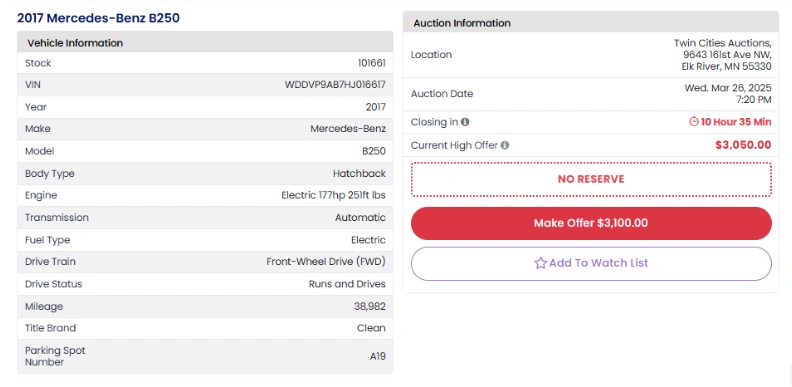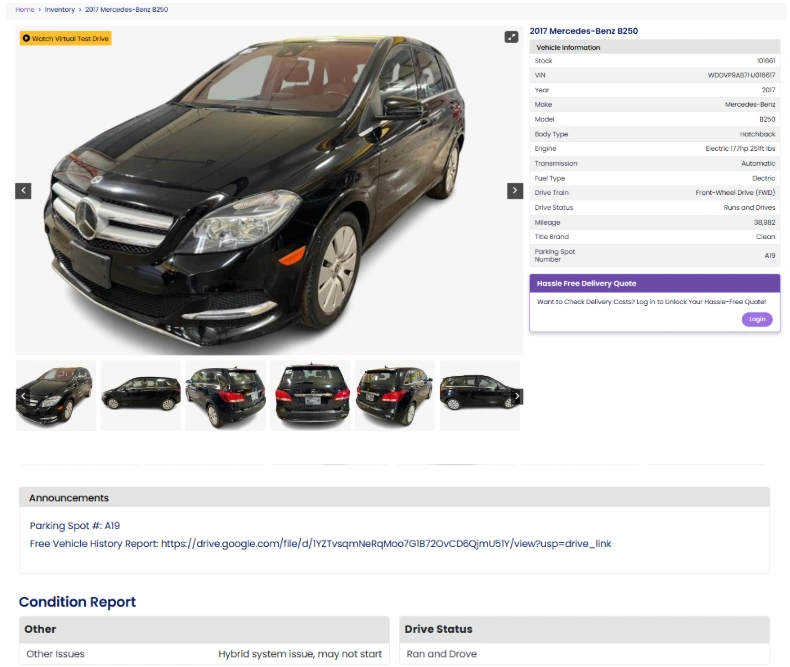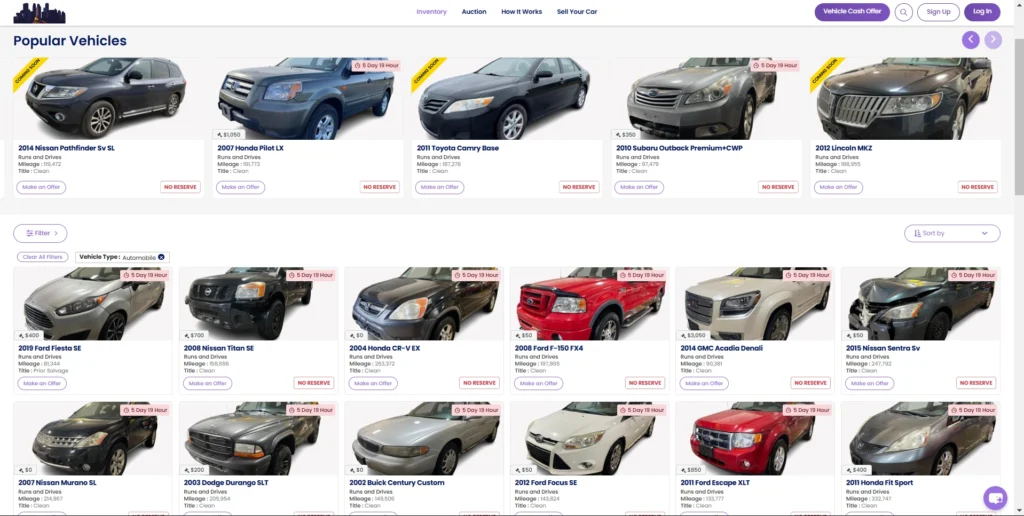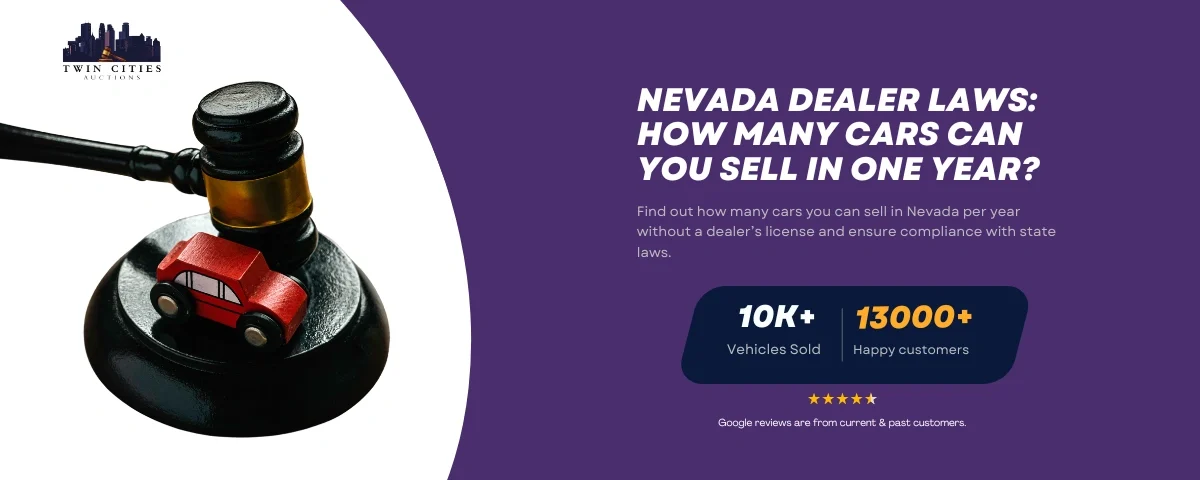Have you ever wondered how many cars you can sell in Nevada without having to obtain a dealer’s license? Whether you’re cleaning out your garage or looking to enter the car sales business, it’s essential to understand the rules that govern vehicle sales in the state.
In Nevada, selling more than a certain number of vehicles without the right license can result in fines, penalties, or even legal action.
In this article, we will break down the specifics of Nevada’s dealer laws, detailing how many vehicles you can sell, the requirements to obtain a dealer’s license, and how to ensure compliance with the state’s regulations. We’ll also cover the benefits of using car auctions like Twin Cities Auctions to streamline your sales process.

Key Takeaways
- You can sell up to 3 vehicles per year in Nevada without a dealer’s license.
- Selling more than 3 cars in one year requires obtaining a dealer’s license from the Nevada Department of Motor Vehicles (DMV).
- There are several types of dealer licenses available, depending on your business needs, including retail, wholesale, and manufacturer licenses.
- Car auctions, such as Twin Cities Auctions, provide a convenient platform for vehicle sales, offering competitive pricing and large audiences.
Understanding Nevada Dealer Laws
Nevada’s dealer laws are designed to regulate the buying and selling of motor vehicles to ensure that these transactions are carried out legally and ethically. These laws distinguish between private individuals selling cars occasionally and businesses that engage in selling vehicles as a primary source of income.
How Many Cars Can You Sell in Nevada Without a Dealer’s License?
In Nevada, you are allowed to sell up to three vehicles per year without needing a dealer’s license. If you sell more than three cars in a calendar year, you must apply for a dealer’s license from the Nevada Department of Motor Vehicles (DMV).
This restriction helps differentiate between individuals casually selling vehicles and those who operate a more formal business. Selling more than the allowed number of vehicles without a license can lead to fines or other legal consequences.
Dealer Licensing Requirements in Nevada
If you intend to sell more than three vehicles within a year, you’ll need to apply for a dealer’s license. Nevada offers different types of dealer licenses depending on the nature of your business. Each type comes with specific requirements and regulations to ensure compliance with state laws.
Types of Dealer Licenses in Nevada
Nevada offers several types of dealer licenses based on the scope of your operations. These include:
- Retail Dealer License: This license is required for businesses that sell new or used cars directly to consumers.
- Wholesale Dealer License: This license allows businesses to sell vehicles in bulk to other licensed dealers, rather than to consumers.
- Manufacturer License: Manufacturers of vehicles in Nevada require this license to sell new cars.
- Broker License: For individuals or businesses that facilitate the sale of cars but do not own the vehicles.
Steps to Obtain a Dealer’s License in Nevada
To apply for a dealer’s license in Nevada, you must follow several steps:
- Complete the Application: Submit a completed dealer application to the Nevada DMV.
- Provide Proof of Location: You must have a physical location for your business. This location must meet local zoning and space requirements.
- Complete a Pre-Licensing Course: New applicants must complete a pre-licensing education course that covers relevant state laws and regulations.
- Submit Fingerprints for Background Check: As part of the application process, you must undergo a background check.
- Obtain Business Insurance: Dealers are required to maintain insurance to cover their business operations.
- Pay Fees: Submit the necessary application and licensing fees.
Types of Dealer Licenses in Nevada
| License Type | Description | Requirements |
| Retail Dealer License | For selling new and used vehicles directly to consumers. | Proof of location, background check, fees. |
| Wholesale Dealer License | For selling vehicles to other dealers in bulk. | Proof of location, dealer registration. |
| Manufacturer License | For manufacturers of new vehicles. | Proof of manufacturing operations. |
| Broker License | For businesses that facilitate car sales but don’t own the vehicles. | Broker contract, business location. |
Market Insights on Nevada Car Sales
Nevada’s car sales market is driven by factors such as the state’s population growth, a robust tourism industry, and increasing demand for both new and used vehicles. Nevada also has a high number of people moving in and out of the state due to its tax benefits and attractive living conditions, which contributes to a constantly shifting car sales market.
Why the Nevada Car Market Is Growing
- High Population Growth: Nevada’s population continues to grow, especially in cities like Las Vegas, where demand for vehicles remains high.
- Tourism: Nevada’s tourism industry plays a significant role in vehicle sales, with rental car companies selling off their fleet to make room for new inventory.
- Military Presence: Nevada has several military bases, and soldiers who are frequently transferred are often in the market for new or used cars.
Key Factors Driving Car Sales in Nevada
| Market Factor | Impact on Vehicle Sales |
| Population Growth | Increases demand for vehicles in both urban and rural areas. |
| Tourism | Rental car companies frequently sell off vehicles. |
| Military Presence | Frequent relocations of service members lead to more vehicle sales. |
Why Auctions Are a Smart Choice for Vehicle Sales
Selling cars through auctions is an excellent way to quickly move inventory and reach a wide audience. Auctions like Twin Cities Auctions offer a reliable platform for buying and selling vehicles in Nevada and beyond.
Advantages of Using Twin Cities Auctions
- Competitive Pricing: Auctions like Twin Cities Auctions allow sellers to set a competitive price and reach a broad pool of buyers.

- Transparency: Every vehicle listed at the auction comes with detailed information, making the buying process transparent for both parties.

- Wide Inventory: Auctions have a large variety of vehicles available

- Quick Turnaround: Auctions offer fast and efficient sales, helping sellers move inventory quickly.
Why Choose Twin Cities Auctions
| Feature | Twin Cities Auctions | Traditional Dealership Sales |
| Pricing | Competitive auction pricing | Fixed pricing, often higher |
| Inventory | Wide variety of vehicles | Limited to dealership stock |
| Transparency | Detailed vehicle history and condition reports | Varies by dealership |
| Convenience | Fast and efficient vehicle transactions | Longer sales cycles |
| Reach | Attracts a broad national and local buyer base | Limited to local buyers |
Practical Tips for Sellers and Dealers
When selling vehicles in Nevada, there are a few important things to keep in mind to stay compliant with the state’s dealer laws and maximize sales opportunities.
- Track Your Sales: Keep accurate records of each sale, including the vehicle’s VIN, sale price, and buyer information.
- Know the Limits: Be aware of the limit for selling cars in Nevada. If you plan to sell more than four cars in a year, apply for a dealer’s license.
- Consider Using Auctions: Auctions provide an opportunity to spot a great deal which can be useful for sellers looking to buy vehicles to resell in Nevada.
- Stay Informed: Keep up with market trends and adjust your inventory based on what types of cars are in demand.
Public Auctions Made Easy with Twin Cities Auctions
At Twin Cities Auctions, we strive to simplify the public auction process for everyone. You don’t need a dealer license to buy or sell cars here. Our online auctions are designed to be user-friendly and open to the public, ensuring that individuals of all experience levels—from novice buyers to experienced sellers—can participate with ease.
With a focus on transparency and ease of use, we provide all the tools and support you need to confidently participate in the auction process. Start your car buying or selling journey with us today and experience how straightforward and effective our auction system can be!
Looking for more options? Explore our comprehensive list of all available car auctions across the United States. Your next deal might be just a click away!
FAQ
How many cars can I sell in Nevada without a dealer’s license?
In Nevada, you can sell up to three vehicles per year without needing a dealer’s license. If you exceed this limit, you will need to apply for a dealer’s license from the Nevada DMV.
What are the types of dealer licenses available in Nevada?
Nevada offers retail, wholesale, manufacturer, and broker licenses, each catering to different types of vehicle sales businesses. The requirements for each type vary, so it’s essential to apply for the right license for your business.
Do I need a special license to sell cars at an auction in Nevada?
No, you do not need a dealer’s license to sell a vehicle at an auction, but you do need to follow the auction’s rules and regulations, which may include providing vehicle documentation and fees.
How do I obtain a dealer’s license in Nevada?
To obtain a dealer’s license, you need to submit an application to the Nevada DMV, provide proof of business location, complete a pre-licensing course, undergo a background check, and submit business insurance documentation.
What’s the advantage of selling cars at Twin Cities Auctions?
Twin Cities Auctions offer competitive pricing, a large selection of buyers, and a transparent sales process, helping you sell your cars quickly and at fair market value.
Are there fines for selling cars without a dealer’s license in Nevada?
Yes, selling more than three cars in a year without the proper dealer’s license can result in fines and penalties, so it’s important to comply with the state’s laws.
What should I do if I want to sell more than three cars a year in Nevada?
You’ll need to apply for a dealer’s license from the Nevada DMV to sell more than three cars legally in a year.
How can I stay compliant with Nevada’s dealer laws?
To stay compliant, keep track of your sales, obtain the correct dealer’s license if needed, maintain proper documentation, and ensure that you meet all insurance and business location requirements.


